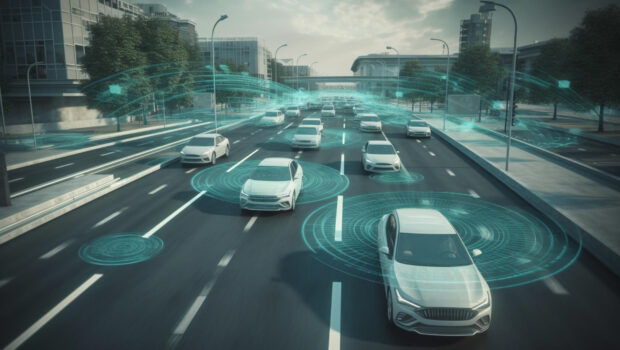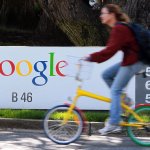How AI and Smart Tech Are Revolutionizing Car Accident Prevention and Claims Processing
Artificial intelligence (AI) and smart technology are transforming how we prevent car accidents. Modern vehicles now feature advanced driver-assistance systems (ADAS), which include automatic emergency braking, lane departure warnings, and adaptive cruise control. These technologies rely on AI to analyze road conditions, detect potential hazards, and react faster than human drivers. Since human error is responsible for nearly 94% of car accidents, AI-driven solutions provide a way to significantly reduce crashes and save lives.
Companies such as Tesla, BMW, and Mercedes-Benz are developing and refining semi-autonomous and fully autonomous driving technology to improve safety. While completely self-driving cars are still being tested, existing AI features are already making an impact. Additionally, AI-powered predictive analytics help identify accident-prone areas based on historical crash data. By leveraging this information, transportation agencies and city planners can take preventive measures, such as redesigning high-risk intersections or improving traffic signal timing to reduce collisions.
How Smart Tech Enhances Accident Documentation and Evidence Collection
According to donaldsonweston.com, In the aftermath of a car accident, accurate evidence collection is crucial for determining fault and expediting insurance claims. AI-powered dashcams, black box recorders, and telematics systems have revolutionized how accidents are documented. These devices provide real-time data on speed, braking behavior, and vehicle positioning, helping to create an objective record of the incident.
In addition to onboard vehicle technology, AI-enhanced traffic cameras and surveillance systems play a growing role in accident investigations. When collisions occur, these systems can capture high-resolution images and videos that show exactly what happened before, during, and after impact. AI-driven software can analyze this footage, reconstruct accident scenarios, and detect crucial details that human investigators might overlook. This level of precision and automation leads to faster claim settlements and more accurate fault determinations, benefiting both drivers and insurers.
Blockchain and the Future of Secure Accident Records
Blockchain technology is emerging as a secure and transparent solution for managing accident records. Traditionally, insurance claims involve complex paperwork, long processing times, and disputes over missing or altered information. By storing accident data on a tamper-proof blockchain ledger, insurers and legal professionals can ensure that records remain accurate, verifiable, and accessible to all authorized parties.
Additionally, smart contracts—self-executing agreements powered by blockchain—can automate insurance claim payouts. If accident data from a dashcam, black box, and AI assessment confirms that a driver was not at fault, the smart contract can instantly approve compensation without requiring manual review from adjusters. This approach not only reduces fraud but also eliminates unnecessary delays in claim processing. By integrating blockchain with AI-driven accident analysis, insurers can provide a more efficient, secure, and fair claims process for policyholders.
AI-Driven Claims Processing and Legal Assistance
Filing an accident claim has historically been a frustrating and time-consuming experience. Insurance companies often require drivers to submit extensive documentation, negotiate with adjusters, and wait weeks for claim approvals. However, AI is streamlining this process by automating claim evaluations, verifying accident reports, and assessing vehicle damage in record time.
AI-powered chatbots and virtual claims assistants are becoming common in the insurance industry. These systems guide accident victims through the claims process, answering questions, collecting necessary documents, and providing real-time claim status updates. Some insurers are even using AI-driven image recognition tools to assess vehicle damage from accident photos. By comparing images against millions of past cases, AI can quickly estimate repair costs and suggest fair compensation amounts, reducing disputes between insurers and policyholders.
Law firms are also integrating AI to help car accident victims pursue legal claims. AI-powered legal assistants analyze accident reports, police statements, medical records, and case law to identify negligence and liability. Some AI platforms can even predict case outcomes based on past court decisions, allowing victims to make informed choices about settlement offers or litigation. These advancements empower accident victims by speeding up the legal process and increasing access to justice.
Ethical and Legal Challenges of AI in Car Accidents
Despite its benefits, AI introduces new legal and ethical challenges in car accident cases. One of the most complex issues is determining liability in autonomous vehicle crashes. When a self-driving car causes an accident, who is at fault? Is it the vehicle owner, the software developer, or the automaker? Current traffic laws are designed for human drivers, and legal frameworks are still evolving to address accidents involving AI-driven vehicles.
There are also concerns about AI bias and data privacy. AI systems analyze massive amounts of driver behavior, location data, and accident history, raising questions about who owns this data and how it is used. Additionally, if AI algorithms are trained on biased datasets, they may make inaccurate or unfair assessments of fault in accident cases. For example, an AI system might unintentionally favor certain driving behaviors based on historical data, leading to unjust claim denials or incorrect liability assignments. To ensure fairness and public trust, regulators must establish transparent AI auditing standards and ethical guidelines.
Conclusion: The Road Ahead for AI and Smart Tech in Accident Management
AI and smart technology are revolutionizing car accident prevention, evidence collection, and claims processing. With predictive analytics reducing crash risks, AI-powered dashcams documenting incidents, and blockchain securing accident records, drivers now have more tools than ever to protect themselves on the road. Additionally, AI-driven claims processing and legal assistance are making it easier for accident victims to get fair compensation quickly and efficiently.
However, as AI continues to play a larger role in accident investigations and liability assessments, legal and ethical challenges must be addressed. Policymakers need to create clear regulations for autonomous vehicle liability, while insurers must ensure that AI-powered claims assessments remain fair and transparent. Looking ahead, advancements in AI, blockchain, and self-driving technology will continue to shape the future of road safety and accident management. While there are challenges to overcome, the potential for a safer, smarter, and more efficient future is undeniable.
Image source: AI Generated by Freepik

















